Small dog breeds that don't shed: your perfect companion without hair chaos
If you love dogs but are annoyed by constant hair loss and dog hair in your home, then you have come to the right place! There are actually some small dog breeds that don't shed, or shed very little or not at all, and are therefore particularly suitable for allergy sufferers or people who value a hair-free environment. But be careful: less hair does not necessarily mean less care! Many of these dog breeds still require regular and intensive care to keep their fur healthy and well-groomed.
In this comprehensive article, we introduce you to the best small dog breeds that don't shed or shed very little hair. You'll get detailed insights into the characteristics, care needs and ideal environment of the different dog breeds. Maybe you'll find the perfect dog breed for your everyday life here!
1. Malteser: The elegant classic
Long, silky coat without undercoat
The Maltese is one of the most well-known small dog breeds that do not shed or hardly shed any hair. Its long, silky coat is a real eye-catcher. The lack of undercoat means that the hair that falls out stays in the coat and is not spread around the house. This dog breed is ideal for anyone looking for a dog with minimal hair loss.
care requirements for the Malteser
Despite the low shedding, regular brushing is essential. A Maltese needs a thorough brushing treatment at least once a week to prevent matting and knots. Regular visits to the groomer will help keep the coat in optimal condition and minimize the amount of loose dog hair.
character and suitability
Maltese are playful, intelligent companion dogs that integrate well into families. They are particularly affectionate and love being the center of attention. Their friendly nature makes them ideal for people looking for an active dog that sheds little and needs lots of attention.
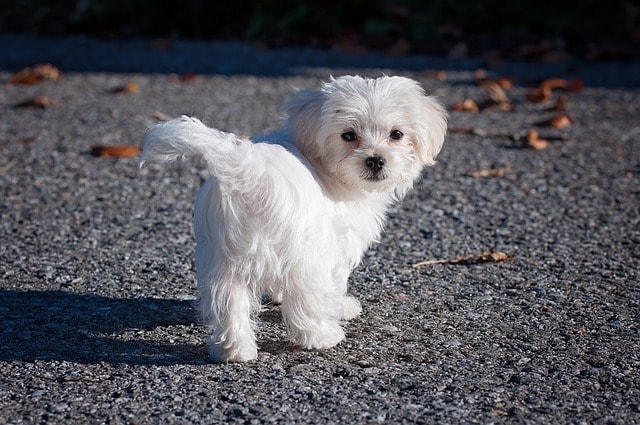
2. Bichon Frisé: The cheerful charmer
Dense, curly coat with little hair loss
The Bichon Frisé is known for its thick, curly coat, which sheds very little despite the undercoat. The hair gets caught in the curls, creating an almost hair-free environment. This small dog breed is particularly easy to care for when it comes to hair loss.
Regular grooming
A weekly brushing routine is necessary to prevent matting. The Bichon Frisé's coat needs to be groomed regularly to keep it healthy and free of knots. Regular visits to the dog groomer are recommended to minimize the amount of dog hair that falls out.
character traits
The Bichon Frise is particularly friendly and cheerful. His sociable and cheerful nature makes him an ideal pet for families and individuals. He is easy to train and gets along well with children. These characteristics make him an excellent choice for people looking for a dog with minimal hair loss.
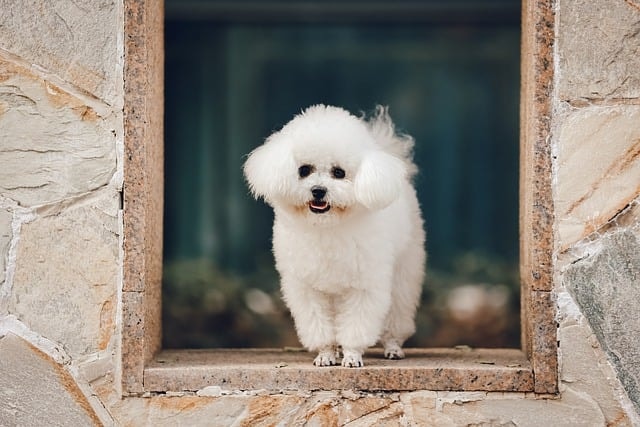
3. Yorkshire Terrier: The noble “Yorkie”
Silky smooth coat without undercoat
The Yorkshire Terrier, often called a "Yorkie," has a silky smooth coat with no undercoat. This characteristic reduces hair loss to a minimum and avoids seasonal shedding. The Yorkie is ideal for people who want a small dog that doesn't shed much.
care and maintenance
Regular trimming is necessary to keep the hair at the right length and prevent matting. A monthly visit to the groomer will help keep the coat healthy and well-groomed and minimize the amount of loose dog hair.
nature and behavior
Yorkies are lively, confident dogs. Their intelligent and courageous nature makes them excellent companions. However, they require consistent training to control their dominant side. Their low tendency to shed hair makes them particularly attractive to allergy sufferers.
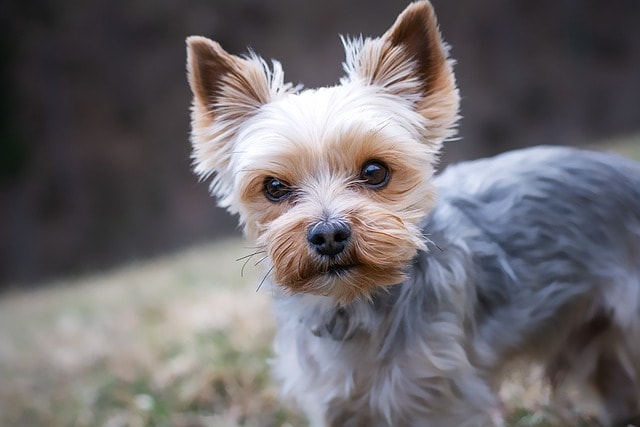
4. Havanese: The charming family dog
Long-haired breed without undercoat
The Havanese is known for its long, soft coat with no undercoat. This reduces hair loss and makes it an ideal choice for people looking for a virtually hair-free dog. This small dog breed is particularly easy to care for in terms of the amount of dog hair lost.
Care of the Havanese
Daily brushing is necessary to keep the coat smooth and prevent matting. Regular visits to the groomer are recommended to keep the coat optimally cared for and healthy, thereby minimizing hair loss.
characteristics and suitability
Havanese are friendly, intelligent dogs that are well suited to families. Their adaptability and gentle nature make them perfect companions for households with children and other pets. This breed is particularly suitable for people looking for a dog that does not shed a lot of hair.
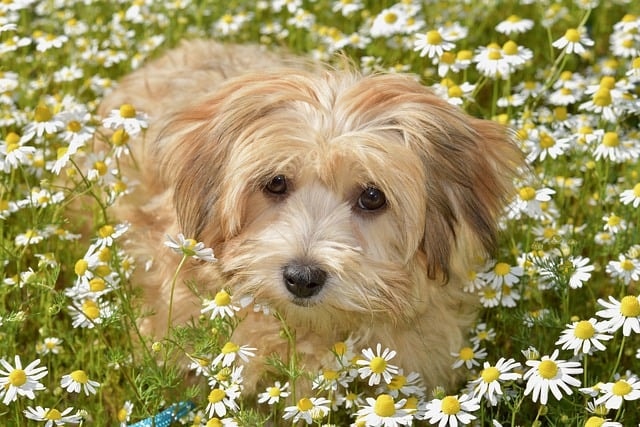
5. Bolonka Zwetna: The Russian darling
Curly coat that sheds little
The Bolonka Tsvetna is a Russian dog breed known for its curly, thick coat. The curly coat holds the lost hair, which makes it particularly easy to care for. The amount of loose hair in the home is reduced to a minimum.
Care instructions for the Bolonka Zwetna
Regular brushing is necessary to keep the coat healthy and free of tangles. Regular trimming at the dog groomer ensures that the coat stays in good condition and the amount of dog hair in the home remains low.
character and behavior
Bolonka Zwetna are playful, loving and particularly family-friendly. They enjoy spending time with their owners and are ideal companions for anyone looking for an active and sociable dog that sheds little hair.
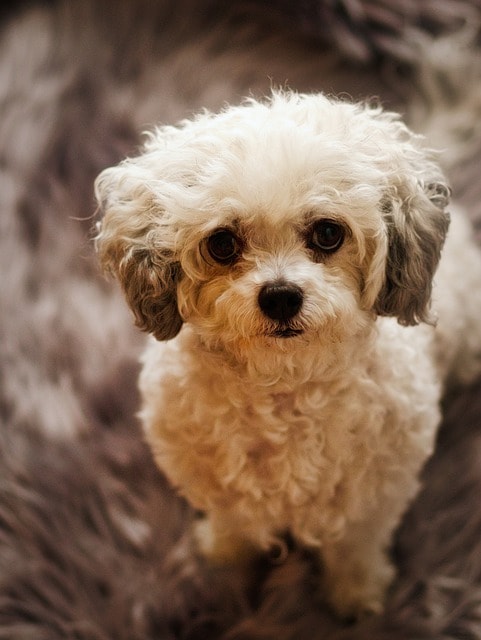
6. West Highland White Terrier (Westie): The brave terrier
Wiry coat with minimal hair loss
The West Highland White Terrier, or Westie, has a wiry topcoat and a dense undercoat. Although they shed a little, most of the hair stays in the coat and does not shed around the house. This small breed of dog has minimal shedding.
Westie's care needs
To keep the Westie's coat in good condition, it should be trimmed once or twice a year. Regular brushing helps keep the coat clean and avoid matting. This care significantly reduces the amount of loose dog hair in your home.
Essential characteristics
Westies are brave, lively and confident. Their active and curious nature makes them excellent companions and watchdogs who require clear leadership and consistent training. Their low tendency to shed makes them a good choice for people who don't want to deal with a lot of dog hair.
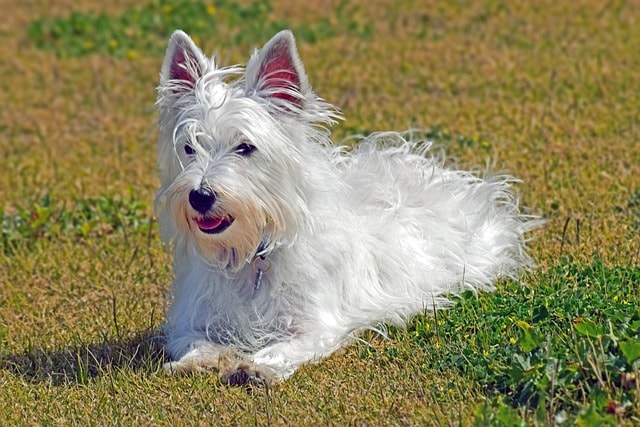
7. Miniature Schnauzer: The clever watchdog
Wiry coat that hardly sheds
The Miniature Schnauzer is a smaller variant of the Schnauzer with a wiry coat that sheds minimally. This breed is ideal for people looking for a dog with little hair loss. The small amount of loose hair makes the Miniature Schnauzer particularly easy to care for.
Care of the Miniature Schnauzer
Regular trimming is important to keep the wiry coat in good condition. Regular brushing also helps to keep the coat free of dirt and dead hair and minimize the amount of dog grooming required.
characteristics and suitability
Miniature Schnauzers are intelligent, alert and loyal dogs. Their lively nature and keen senses make them excellent companions and watchdogs for experienced dog owners who want little to do with shedding.
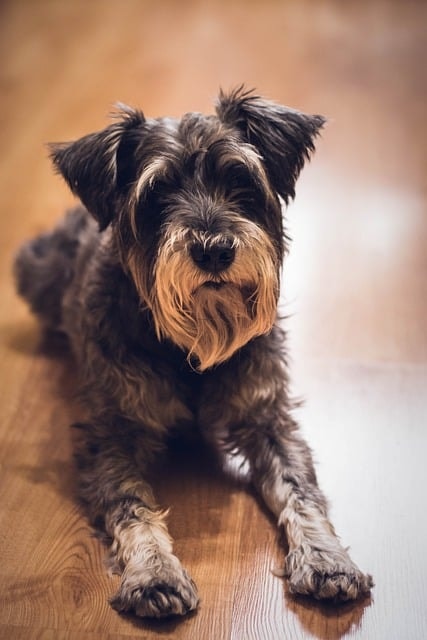
8. Shih Tzu: The Little Prince
Long-haired, silky coat without shedding
The Shih Tzu has a long, silky coat that does not shed, similar to the Maltese. This trait reduces hair loss and makes it a good choice for people who want a nearly hair-free dog. The low amount of dog hair lost is a great advantage of this breed.
Care instructions for the Shih Tzu
Daily brushing is essential to prevent matting and to keep the coat smooth. Regular visits to the groomer are also important to ensure the coat is in optimal condition and to keep hair loss to a minimum.
character traits
Shih Tzus are friendly, adaptable and love spending time with their people. Their calm and even-tempered nature makes them ideal for apartment living. Their low tendency to shed makes them an excellent choice for households that don't want to deal with dog hair.
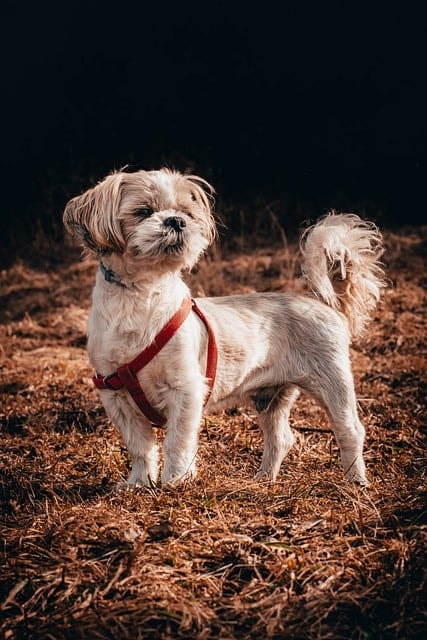
9. Chinese Crested: The exceptional choice
Two variants: “Hairless” and “Powder Puff”
The Chinese Crested comes in two varieties: "Hairless" (almost no fur) and "Powder Puff" (with soft fur). Both varieties are almost hairless, with the hairless variant being particularly easy to care for. These two variants offer a choice for people who are looking for either a minimally shedding dog or a dog breed with very little hair loss.
Maintenance of both variants
The Hairless variety requires minimal skin care, while the Powder Puff variety should be brushed occasionally. Both varieties benefit from regular grooming to prevent skin problems and reduce the amount of dog grooming required.
character and suitability
Chinese Cresteds are very people-oriented, loving and lively. They are ideal for people who are looking for an active but easy-care dog that sheds little hair.
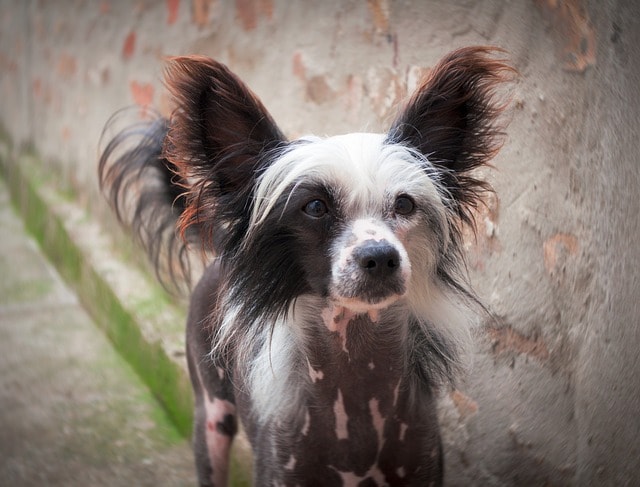
10. Basenji: The African noble dog
Smooth coat with minimal hair loss
The Basenji is an ancient breed with African roots and has a short, smooth coat that hardly sheds. This characteristic makes it one of the easiest dog breeds to care for, especially for people who want to have little to do with hair loss.
Care of Basenji Dogs
The Basenji's short coat requires only occasional brushing to keep it clean and healthy. Regular grooming is also important to ensure coat health and minimize the amount of dog hair.
nature and characteristics
The Basenji is independent and self-reliant. His unconventional nature makes him an excellent companion for experienced dog owners who are looking for a dog that doesn't shed much and requires little grooming.
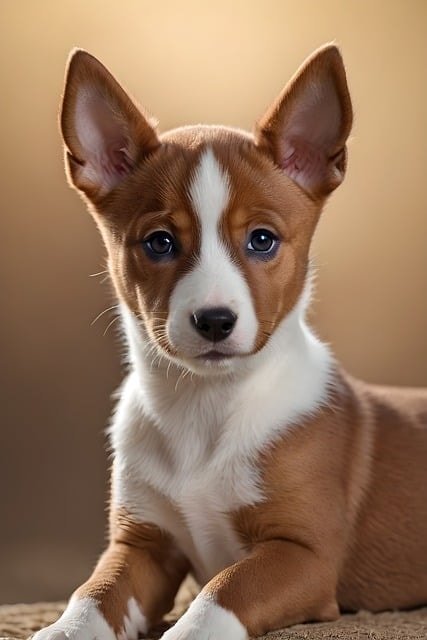
Why do these dog breeds shed so little?
coat structure and hair growth
The secret behind dog breeds that don't shed or shed very little often lies in the structure of their coat. Many of these dog breeds have either no or very little undercoat, which minimizes shedding and reduces the amount of dog hair scattered around the home.
Curly or wiry coat
Dogs with curly or wiry coats tend to retain loose hair in their coats rather than shedding it. This reduces shedding and keeps the home cleaner.
Are these dog breeds ideal for allergy sufferers?
Dog Hair vs. Allergens
Although dogs that shed less hair and spread less allergens around the home, they are not necessarily hypoallergenic. Allergic people often react to proteins in the dog's saliva, urine or dander, not just to the hair itself.
allergy tests before purchase
It is advisable to have an allergy test done before purchasing a dog to determine if you are allergic to that breed. This will help prevent possible allergic reactions and ensure that the dog fits your lifestyle.
Further considerations for choosing the right dog
space and lifestyle
When choosing a dog, you should also consider your lifestyle and the size of your home. Small, low-shedding dogs are ideal for apartments and smaller rooms because they take up less space and shed less hair.
Time for care and attention
Each breed requires a certain amount of time for grooming and attention. Although some dogs shed less, it is important to schedule regular grooming time to ensure the dog stays healthy and happy.
Conclusion: Less hair, more joy!
Small dog breeds that don't shed or hardly shed at all are perfect companions for people who are looking for a low-maintenance dog or who have allergies. Despite the low hair loss, you should be prepared to take grooming seriously. With regular brushing and occasional trimming, you can ensure that your dog not only looks pretty, but also feels good. And who knows? Maybe you'll find the perfect hair-free four-legged friend here who will enrich your life and bring you joy every day!
